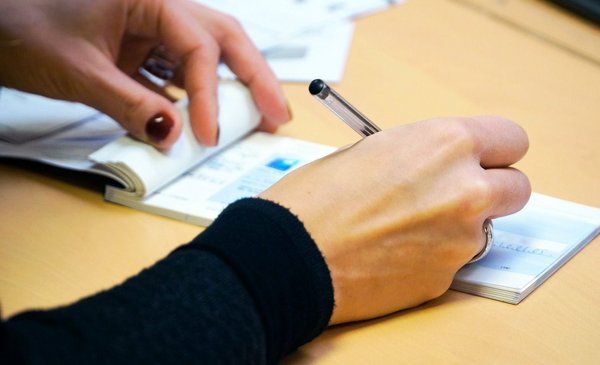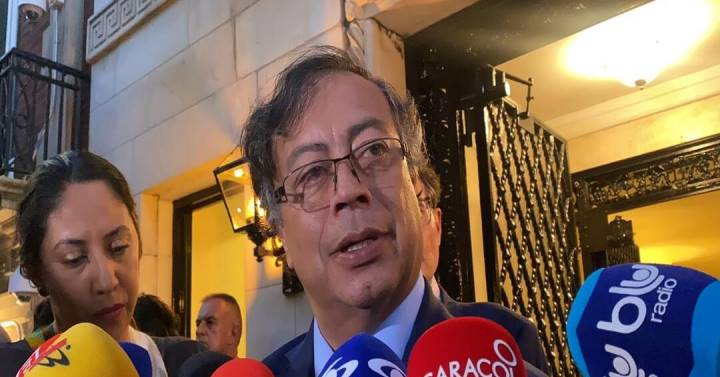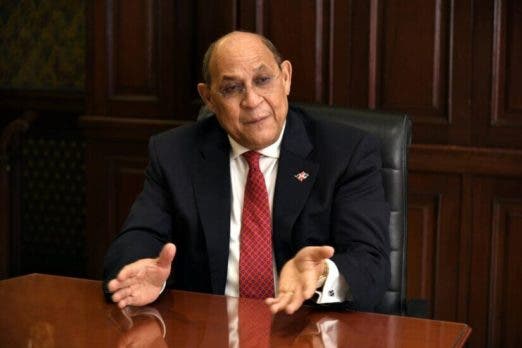The passes of renowned players such as Matías Vecino, Joaquín Piquerez and Alfonso Espino were the subject of consultation this month at Interpol. The reason was the complaint made by the businessman Óscar Varela Chiolo, who at the end of 2019 pointed out the representative Pablo Boselli for having defrauded him in various businesses. Although prosecutor Ricardo Lackner initially filed the case, Varela’s lawyer requested re-examination and the judge in the case understood that there were merits to continue, that is why the statements began at Interpol and now the investigation is in charge of Enrique Rodríguez.
Érika Graf (former professional swimmer and wife of Boselli), Rodrigo López (employee in the defendant’s company) and Juan José Quiñones (Boselli’s accountant) were questioned. Although they were brief and did not provide too many details, beyond denying any irregularity, a contradiction arose between the statements. Boselli represents more than 100 players, 20 of them playing in Europe. He also represents Diego Alonso, technical director of the Uruguayan National Team.
Graf was asked on September 6 what her relationship was with the Global Business Group and Liblon SA Regarding the first, she replied that it belonged to her husband and regarding the second, that she did not know her. “I have no idea who was part of the Liblon company” and she “had never heard that name”, she replied and warned that she is not in the details of her husband’s business, but she trusts him. The next day, Quiñones was asked the same thing. The answer to the first question was the same, but with respect to Liblon, she said that it belonged to Varela and its directors were him and Graf, so she contradicted what the woman had declared the day before.
Regarding the passes of Vecino, Piquerez and Espino, they were asked how much each one -Boselli and Varela- corresponded to and how much they had been paid. They responded that the percentages were less than 50% and that they were paid what was due, except for Piquerez, who was a specific case.
Gabriel Santín, Boselli’s civil lawyer, told The Observer that “when it is said that there is a complaint for fraud, there is already a conditioning (…) For us it is not a criminal issue, it is a civil issue. It is a complaint from 2019. We have been talking to different professionals. When we are the same and those who are changing are those on the other side, it must be for a reason. I’ll stay there “. The lawyer referred to the fact that Varela’s defenders were no longer Ignacio Durán and Gumer Pérez (with whom he started the process) and now Posada took over the case.
In January 2020, he told Tirando Paredes (1010): “I did not see any element in any contract or situation that was incorrect from a legal point of view or that was properly written (…) I do not see irregularities within the contracts that could be cataloged as deception from the civil point of view, much less criminal, “he explained at the time.
The map of the reported scam
In the complaint made by Varela, through his lawyer Fernando Posada, he described the following four episodes in which they understand that there were irregularities.
1. Neighbor, Espino and Piquerez
In 2016, according to the complainant, he was “induced” to invest US$450,000 in a business for Alfonso Espino, Matías Vecino and Joaquín Piquerez. Thus, according to Varela’s account, Boselli “simulated a scenario of eventual revenue that was not such.”
- For Espino, a lower percentage was acquired than promised and, in addition, the ownership of those rights was not guaranteed, he said.
- In the case of Vecino, “the promised commission was not the real one, but significantly less.”
- In the case of Piquerez, they maintained that Boselli claimed that he had the player’s representation, but had lied. When Varela wanted to opt for him, as he related, it was learned that this was not the case. Boselli promised to fix it but he never did.
2. The “package” of players in 2015
The proposed deal involved the acquisition of 50% of the rights to five players for US$1 million. Varela and Boselli would pay the cost in half. They were Pablo Olivera (River Plate), Yonatthan Rak, Cristhian Colman (Miramar Misiones), Joaquín Lemos and Andrés Barboza (Cerro).
Varela deposited his share in Cambio Gales through the company Exclusive Brands International INC. (EBI) of which they were equal partners with Boselli. They do not know if that money reached its destination, but the complainants suspect that it did not because of the sequence of events and their dates.
The complainant made the deposit on January 30, 2015 and Boselli, according to the complaint, withdrew US$300,000 on February 3 and the rest on February 10. He promised to add the corresponding receipts. But Varela was struck by the fact that the representative had withdrawn the money in cash. “It leaves us with serious suspicions that the US$300,000 first and the US$200,000 later were not taken by the defendant through mountains of bills, but rather were reassigned to the payment of other personal or commercial debts or concepts,” the letter states. .
In addition, the receipts that the defendant gave to Cambio Gales show that the Miramar Misiones club was paid US$100,000 on January 30 for Rak, the same figure on the same day for Colman and another US$20,000 for both players. On February 2, Tidenal SA was paid US$200,000 for Pablo Olivera and on February 10 the same amount was paid to Cerro for Lemos and Barboza.
The complaint questions how Boselli managed to pay for those players earlier when he had not yet received the money that Varela deposited. He also points out the difference in costs between what he told Varela they would cost (US$1 million) and what he ended up paying (US$620,000). The complainant considers that these receipts are false and that the facts did not occur in that way.
According to the complainant, the representative informed him of a false value and projection of success. After the alleged scam, he found that the market value of these players was “well below the established value.”
3. Youth of the Stones
Through the company Liblon SA, an agreement was signed with Juventud de las Piedras to buy 70% of the rights of 10 players. In total, for the maneuver, they would pay US$ 300 thousand each.
Varela paid his share for Boselli to transfer him to the club, something that, according to the complainant, never happened. What the club received was a deferred check for US$266,000.
4. Phoenix Club
They were going to buy a player and there were two options: Leandro Zazpe or Rodrigo Abascal. The cost of the business was US$100 thousand. Boselli and Varela would pay half each. What was transferred by the complainant would be used to settle a debt between Fénix and the Uruguayan Football Association (AUF) and what was contributed by the accused would go to the coffers of the club. According to Varela’s lawyer, it is not proven that Boselli had complied with his part and they suspect that he did not.







